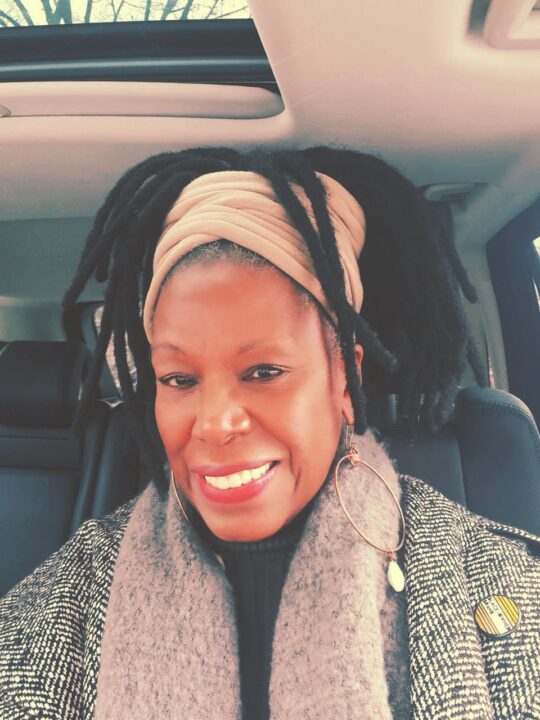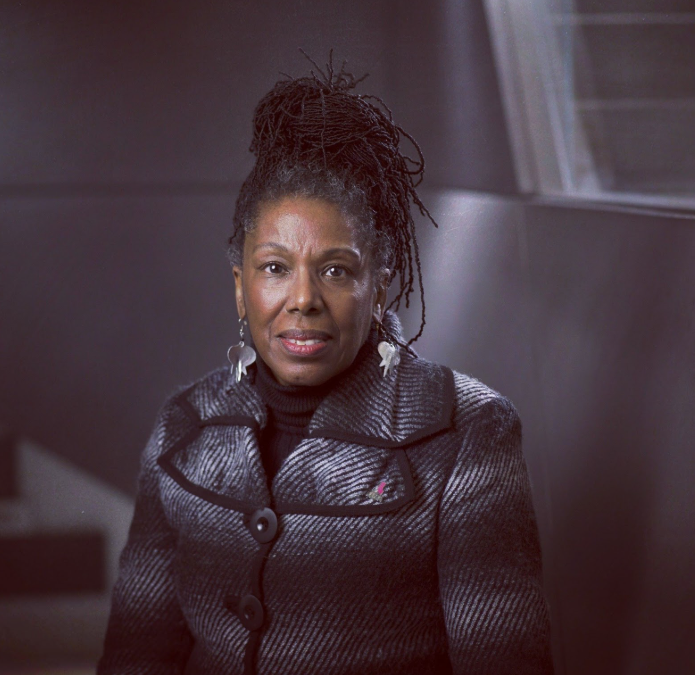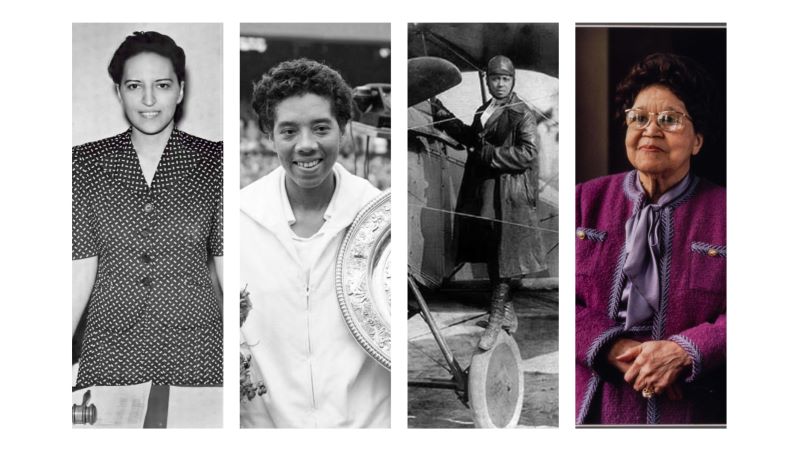Dr. Pamela Kennebrew, is redefining what leadership looks like in health, education, and community healing. As Chair of the Human Services Department at Lincoln University and President-Elect of the Delaware Valley Association of Black Psychologists, her work intersects economic justice, adult education, mental health, and Black women’s wellness.
Honoring Legacy and Identity
“You can’t talk about the tree if you don’t talk about the roots,” Dr. Kennebrew philosophizes to make a point.
Raised in Newark, New Jersey, Kennebrew’s foundation was inspired by disciplined, military parents with rural Southern roots. Her mother, a veteran of the Black Women’s Army Corps, modeled strength and resilience. Her father encouraged her to dream beyond limitations.
This early affirmation of equality shaped Dr. Kennebrew’s educational path. She earned a degree in natural science with a minor in mathematics, preparing for medical school. But hands-on experience in a free clinic shifted her path. She saw how poverty, not just biology had defined health outcomes.
“People came into the clinic with chronic conditions,” she says. The root cause was not biology. It was economics. It was housing. It was food. It was poverty.”
Financial Equity for Black Women
Dr. Kennebrew shifted into policy and human services. Her graduate and doctoral research was focused on economic insecurity among older Black women.
“Even though Black women are the most educated group, we’re still at the lower end of the economic scale, she explains”. “There’s something structurally or inherently unbalanced with that.”
Her work debunks myths of personal financial mismanagement and highlights systemic exclusion from wealth-building tools like homeownership, inheritances, and debt-free education.
“We didn’t have access to economic accelerators,” she says. We’re educated, but that comes with debt.”
Just because I’m poor doesn’t mean I should have to pay more for everything.
She describes financial literacy as a new way of defining wealth and greater access to reliable financial education tailored for marginalized communities.

Centering Adult Learners in Education
As an educator, Dr. Kennebrew champions equity for non-traditional learners. She says that she believes in validating life experience and in developing programs that recognize working adults’ challenges.
She draws on history and personal experience to recommend cooperative living models—sort of shared housing for mutual support—as a practical strategy for economic survival.
“People lived with someone until they got on their feet,” she says. “That’s not failure. That’s strategy.”
Dr. Kennebrew also emphasizes the impact of the mental toll of economic instability.
“Poverty is traumatic,” she points out. The less money you have, the more things cost for you.”
Menopause, Aging, and Wellness in Black Communities
Dr. Kennebrew is leading one of the most under-addressed public conversations: Menopause and aging in Black communities.
“In a youth-oriented society, anything associated with aging has a problem, she says”
She calls out the cultural silence and misinformation around menopause and aging. Her goal is to foster open, intergenerational conversations.
“There’s value beyond childbearing,” she insists. “We are wiser. We are wealthier. We are powerful.”
She adds with conviction “Just because one thing is going down, doesn’t mean something else isn’t going up.”
She launched the Fit for Fifty program to help women enter midlife with a plan, not fear.
Mental Health and Community Healing
As a psychologist and advocate, Dr. Kennebrew pushes for mental health access rooted in cultural context.
“Suicide happens when pain is stronger than hope,” she says. “We need institutions that help maintain hope”
She promotes healing circles and community-centered mental health dialogues. She believes professionals must go beyond office settings and engage people where they are in the community.
Her work also includes elevating mental health dialogue for Black men.
Education with a Multiplier Effect
“My goal is not to show you how smart I am—but to show you how smart you are.”
Kennebrew’s influence is exponential. Through her students, her lessons multiply. She frames each learner as a legacy bearer.
“Each person I interact with is a building. That’s how I think the legacy will live on.”

Vision for the Future
Dr. Kennebrew remains active, curious, and forward-looking. Her recent travels have taken her around the world. Her next destination: Tanzania.
“There’s some ‘it’ I would never do again. But even those things that might have been considered a mistake ended up being a blessing.”
Kennebrew views the world as interconnected—a place where ideas and systems mirror each other across borders. She draws parallels between economic inequality in the U.S. and women’s struggles in other countries.

Final Word
Dr. Pamela Kennebrew offers a grounded, clear voice in conversations about equity, wellness, and education. She is not seeking accolades. She is building memory, mentoring leaders, and shaping conversations that matter.
“As long as people call your name, you live forever.”

Dr. Eric John Nzeribe is the Publisher of FunTimes Magazine and has a demonstrated history of working in the publishing industry since 1992. His interests include using data to understand and solve social issues, narrative stories, digital marketing, community engagement, and online/print journalism features. Dr. Nzeribe is a social media and communication professional with certificates in Digital Media for Social Impact from the University of Pennsylvania, Digital Strategies for Business: Leading the Next-Generation Enterprise from Columbia University, and a Master of Science (MS) in Publication Management from Drexel University and a Doctorate in Business Administration from Temple University.





